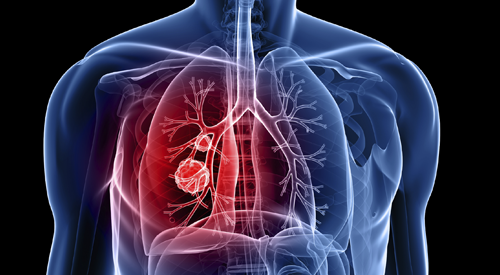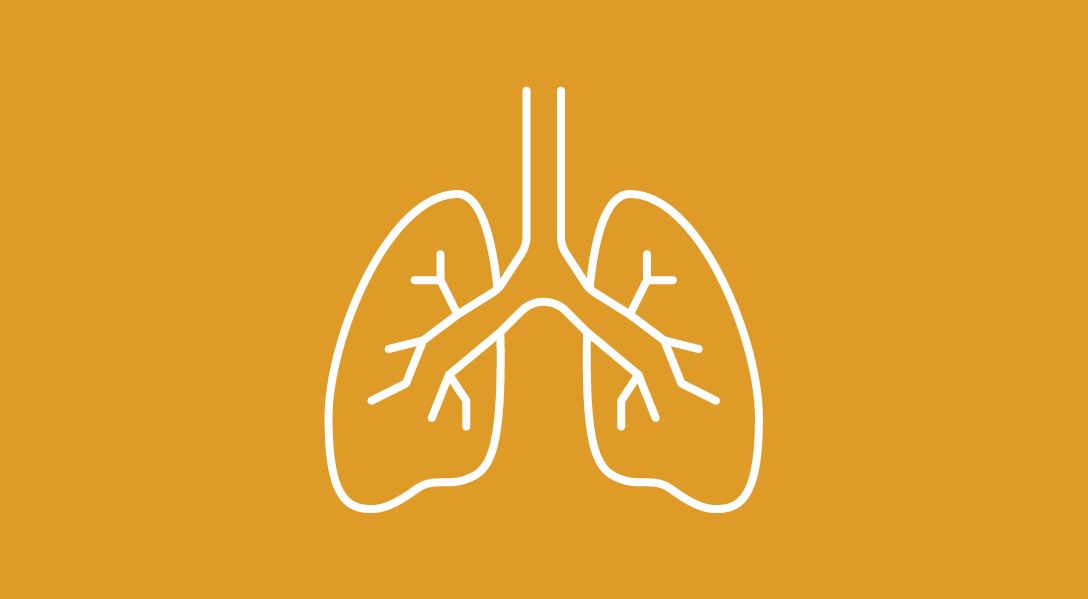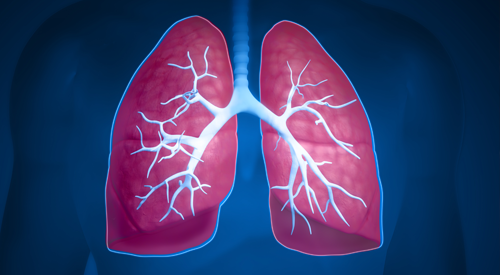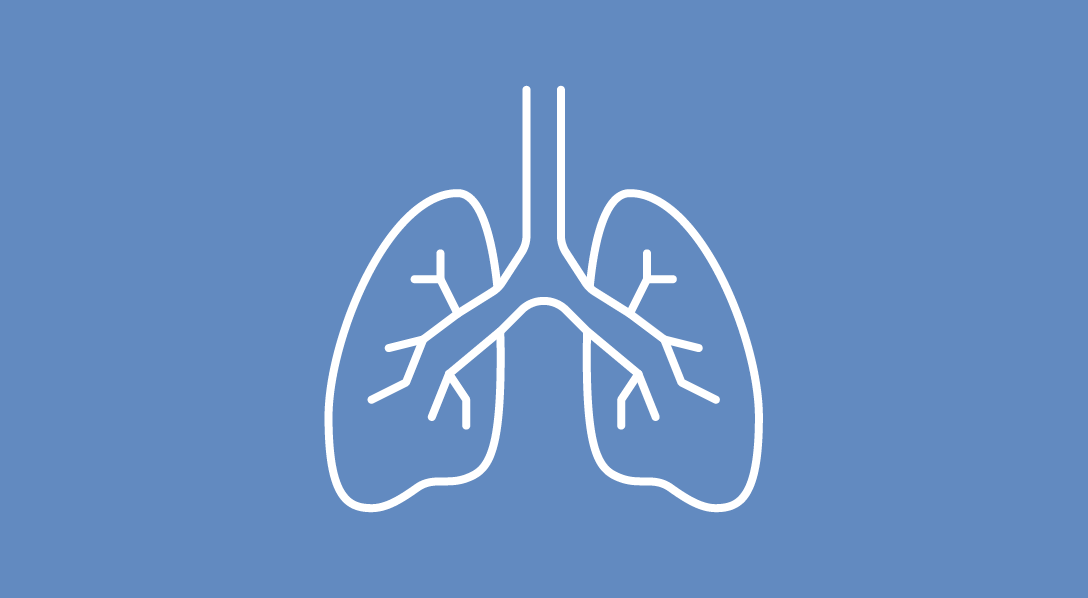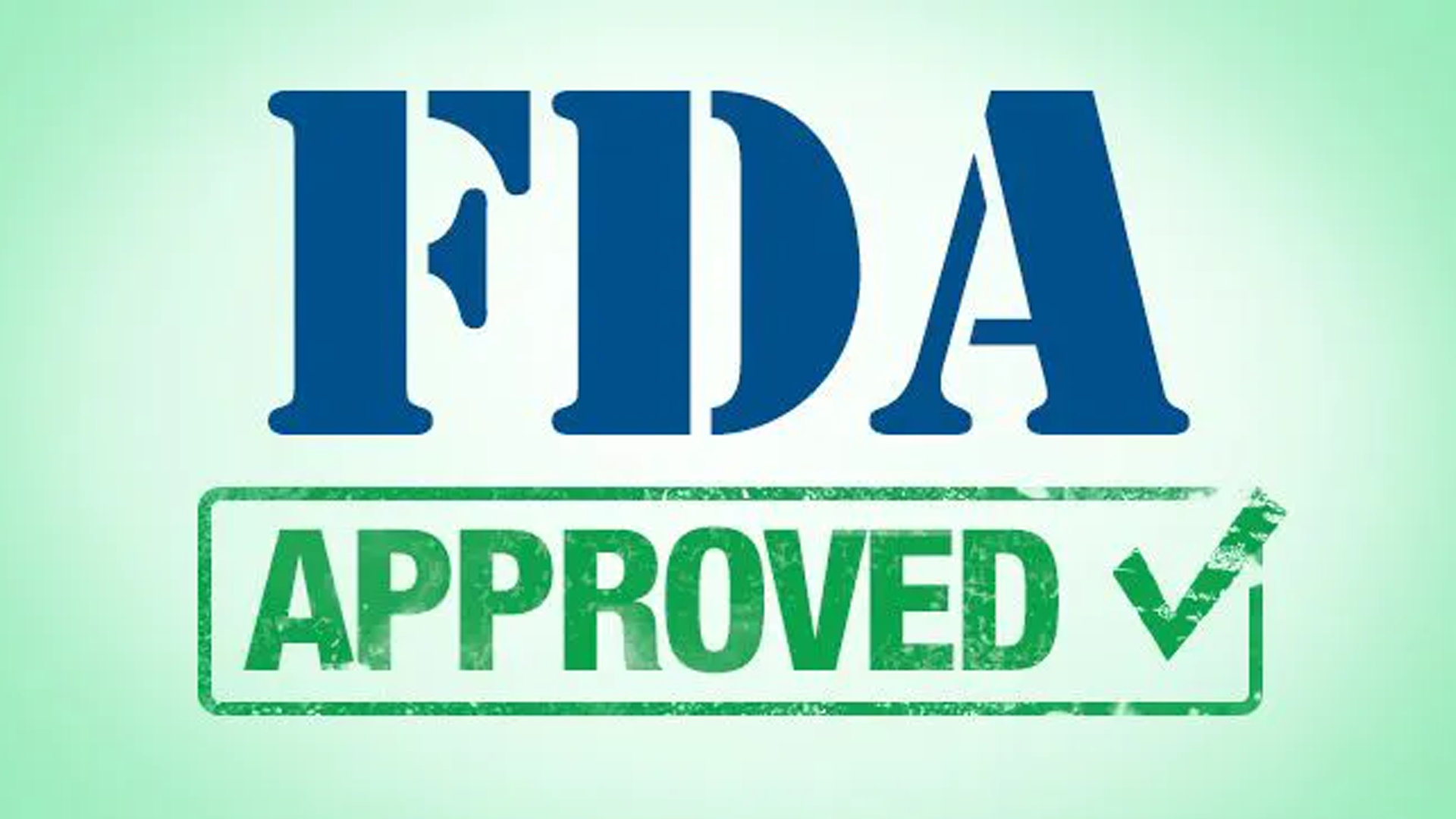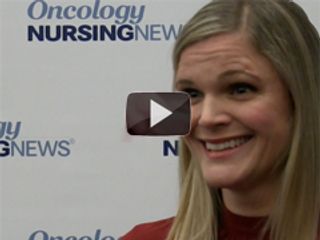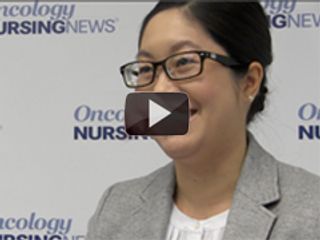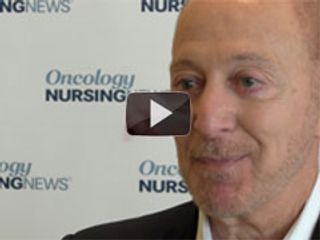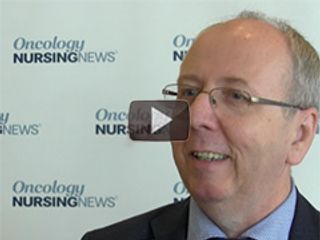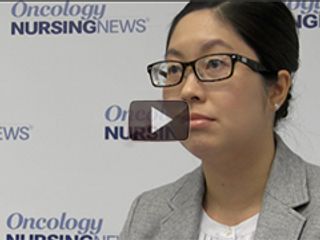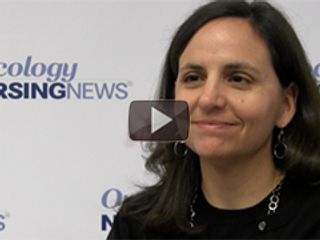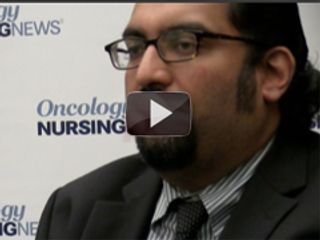
Lung Cancer
Latest News
Latest Videos

More News

Oncology nurses can discuss dose modifications for common smoking cessation agents with patients and providers to improve smoking cessation rates.

The BLA for zenocutuzumab to treat NRG1-positive non–small cell lung cancer and pancreatic cancer received priority review from the FDA.

Tarlatamab, a bispecific T-cell engager, was approved by the FDA for adults with extensive-stage small cell lung cancer.
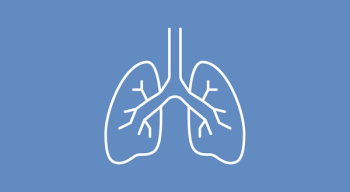
Tolerable anti-tumor activity was demonstrated in patients with HER2-overexpressing non–small cell lung cancer who were treated with trastuzumab deruxtecan at 2 dose levels.
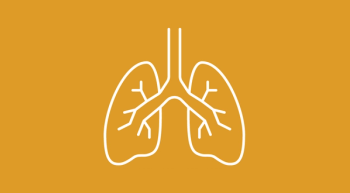
Glecirasib resulted in durable responses with a manageable safety profile for pretreated advanced non-small cell lung cancer with KRAS G12C mutations.

Durvalumab monotherapy as consolidation therapy in limited-stage small cell lung cancer produced a clinical benefit in patients from the phase 3 ADRIATIC trial.
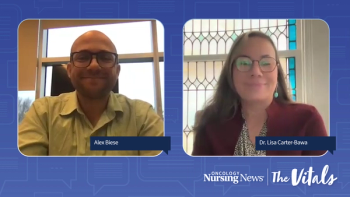
In this episode of The Vitals, we speak with an expert who discussed the importance of supportive care and education for patients with lung cancer who are treated with immunotherapy.

Throughout April, the FDA approved drugs for the treatment of diseases including solid tumors, lung cancer, multiple myeloma, bladder cancer, and low-grade glioma.

Poor sleep quality among those with lung cancer and COPD emphasize the need to develop effective assessment strategies.

A pilot study proved that a nurse-coordinated approach shows promise in treating more than just 1 symptom among patients with cancer.

Older patients with cancer demonstrated a moderate to high symptom burden, leading to the need for routine symptom assessments and tailored management interventions.

Fast track designation has been granted by the FDA to PT217 for extensive stage small cell lung cancer with disease progression.

Alectinib was approved for the treatment of patients with ALK-positive non-small cell lung cancer after surgical resection.
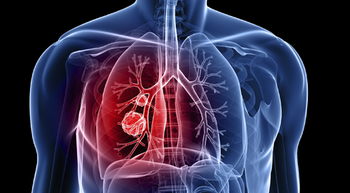
Oncology nurses play a vital role in informing patients about the importance of molecular testing and brain imaging in EGFR-mutated lung cancer.

Over the last 5 years, 57% of drugs approved by the FDA for a cancer-related indication did not show a clinical benefit in confirmatory studies.

Oncology nurses provide patients with lung cancer the education and empathy needed to navigate treatment options and adverse event management.

Compared with docetaxel, adagrasib improved progression-free survival and objective response rate in patients with pretreated KRAS G12C–mutant non–small cell lung cancer.

Tumor-treating fields significantly improved the time to intracranial progression in patients from the phase 3 METIS trial with brain metastases from non-small cell lung cancer.

First-line treatment with osimertinib and chemotherapy significantly improved survival outcomes after disease progression in EGFR-mutated NSCLC.

First-line treatment with anlotinib plus chemotherapy improved progression-free survival compared with chemotherapy plus placebo in patients with extensive-stage small cell lung cancer.

The preference of subcutaneous atezolizumab compared with its intravenous formulation was demonstrated in patients with non–small cell lung cancer treated on the IMscin002 trial.

Throughout March, the FDA has approved drugs for the treatment of disease including lung, hematologic, esophageal, and gynecologic cancers.

The benefits noted in this exploratory analysis were irrespective of the number of neoadjuvant treatment cycles completed in patients with resectable non-small cell lung cancer.

Patients with EGFR exon 20 insertion–mutated NSCLC treated with amivantamab plus chemotherapy experienced an extension in the time to treatment discontinuation and subsequent therapy.

Patients with non–small cell lung cancer treated with targeted therapies experienced an overall survival benefit.

